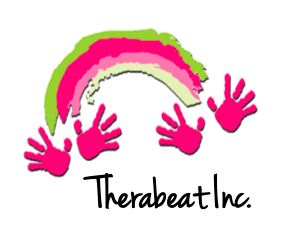Summary of Study:
Lately there has been a growing interest in research exploring how music therapy can support children with Autism Spectrum Disorder (ASD). A recent systematic review and meta-analysis from 2024, titled “The Effect of Music Therapy on Language Communication and Social Skills in Children with Autism Spectrum Disorder: A Systematic Review and Meta-Analysis,” explores this topic in great depth. The large-scale research documented in this review is significant, as it connects directly to current training and clinical applications in the field of music therapy.
The article analyzed 18 randomized controlled trials involving more than 1,400 children with ASD, focusing on the effects of music therapy on language, communication, and social skills. The results provide strong encouragement for continued integration of music therapy into treatment approaches for children with ASD.
Examples of Research Findings Across Essential Functional Domains:
Language and Communication:
Music therapy resulted in significant improvements in the area of language and communication. Children were better able to express themselves and respond to others after participating in music-based sessions. Participation in music-based sessions strengthened children’s ability to express themselves and engage with others.
Social Skills:
Children were engaging more with peers and adults after music therapy sessions.
Behavioral Challenges:
There were improvements in behavior, including reductions in repetitive behaviors and enhanced emotional regulation.
Sensory Processing:
Music therapy supported children in responding more effectively to sensory stimuli.
Self-Help Skills:
Improvements were also observed in daily living skills, such as increased independence in dressing and eating, after music therapy sessions.
Why This Matters—A Personal Reflection:
Reading this article allowed me to reflect on some of the experiences I’ve encountered during my clinical training as a music therapy intern. I have seen firsthand how music can open doors for patients undergoing treatment through music therapy--offering opportunities that traditional talk-based therapies may not always provide. Rhythm, melody, and shared music-making uniquely foster a safe and motivating environment in which children with ASD can explore connections in many ways.
It’s reassuring to know that the work I am doing during my music therapy internship is not only inspiring my growth as an emerging professional, but is also supported by a strong foundation of research. On days when a session may feel chaotic or a client appears disengaged, I remind myself that this field of work really matters. I wholeheartedly believe that music therapy--especially when working with individuals diagnosed with ASD--can truly make a meaningful difference.
Takeaways:
The article acknowledges that there is still much to learn. However, an important takeaway from this article is that the studies did not all utilize the same music therapy approach. Significant differences existed in session length, music choice, and whether or not the therapist was formally certified. This serves as an important reminder that individualized approaches are crucial, as no single method is universally effective for all clients.
It’s also exciting to consider how future research might uncover the specific ways music affects the brain of children with ASD. Greater understanding will allow us, as music therapy professionals, to provide more effective individualized support for our clients.
Whether you’re a parent, a therapist-in-training, or simply curious about the impact of music therapy, I encourage you to explore this article for yourself and consider how ongoing research continues to deepen our understanding of music’s therapeutic potential and inform effective therapeutic strategies.
-Sally Waits, Music Therapy Intern
Reference:
Chen, M., Hu, A., Long, Q., Lee, Y., Shi, Z., & Wang, S. (2024). The effect of music therapy on language communication and social skills in children with autism spectrum disorder: A systematic review and meta-analysis. Frontiers in Psychology, 15, Article 1336421. https://doi.org/10.3389/fpsyg.2024.1336421

